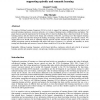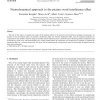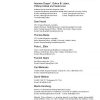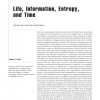114
click to vote
ETS
2007
IEEE
15 years 2 months ago
2007
IEEE
We propose Lifelong Learning Organisers (LLOs) as tools to support the capturing, organisation and retrieval of personal learning experiences, resources and notes, over a range of...
147
click to vote
JODS
2006
15 years 2 months ago
2006
Defining and using ontology to annotate web resources with semantic markups is generally perceived as the primary way to implement the vision of the Semantic Web. The ontology prov...
120
click to vote
LOGCOM
2008
15 years 2 months ago
2008
We describe a two-layer architecture for supporting semantic interpretation and domain reasoning in dialogue systems. Building systems that support both semantic interpretation an...
171
Voted
JODS
2008
15 years 2 months ago
2008
Information integration and retrieval are useful tasks in many information systems. In these systems, it is far from an easy task to directly integrate information from natural lan...
145
click to vote
IS
2006
15 years 2 months ago
2006
An essential element in defining the semantic of Web services is the domain knowledge. Medical informatics is one of the few domains to have considerable domain knowledge exposed ...
141
Voted
JDCTA
2008
15 years 2 months ago
2008
Pervasive computing is an emerging computing paradigm, which is expected to be part of our everyday life in the foreseeable future. The coordination among heterogeneous devices, s...
99
Voted
IJON
2006
15 years 2 months ago
2006
The aim of this study is to explore the nature of the semantic effects in the picture
114
Voted
IJMSO
2006
15 years 2 months ago
2006
: Using archetypes is a promising approach in providing semantic interoperability among healthcare systems. To realise archetype based interoperability, the healthcare systems need...
114
Voted
IJISTA
2006
15 years 2 months ago
2006
In this paper a method for extraction of mid-level semantics from sign language videos is proposed, by employing high level domain knowledge. The semantics concern labeling of the ...
123
click to vote
COMPLEXITY
2007
15 years 2 months ago
2007
abstractions provides an additional supra-phenotypic vehicle for semantic inheritance, which supports the cultural heritages around which civilizations revolve. The following three...




